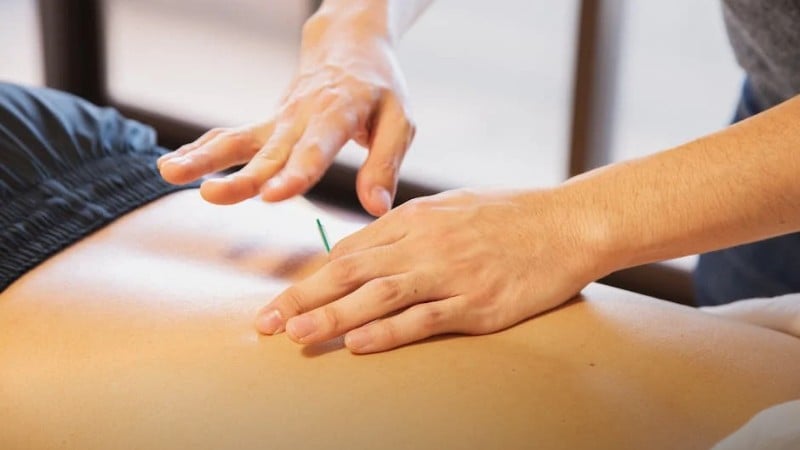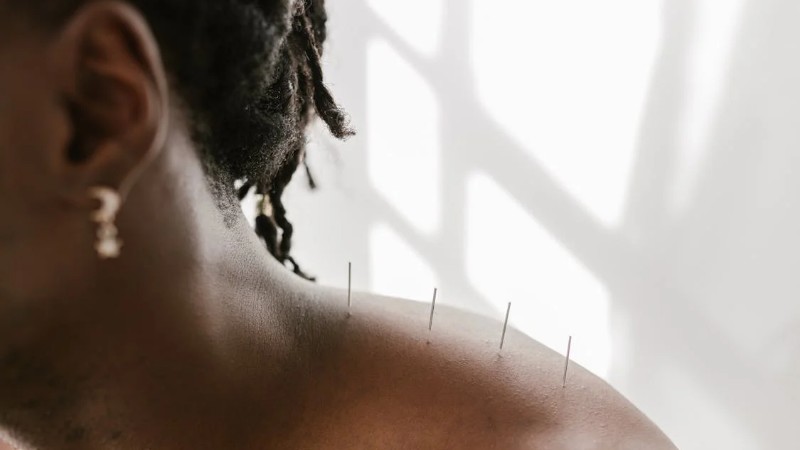Representatives Judy Chu and Brian Fitzpatrick have reintroduced the Acupuncture for Our Seniors Act (H.R. 1667) in the current legislative session. This bill seeks to improve Medicare beneficiaries’ access to acupuncture by addressing regulatory barriers that limit treatment options.
Although the Centers for Medicare and Medicaid Services (CMS) recognized acupuncture’s benefits and began covering it in January 2020, acupuncturists are still required to work under the supervision of another healthcare provider.
The proposed legislation aims to remove this restriction by recognizing qualified acupuncturists as Medicare providers, granting them the ability to treat patients independently.
If enacted, the bill would be a significant step forward in expanding treatment options for seniors suffering from chronic low back pain and other conditions. By lifting the limitations, the legislation seeks to make acupuncture more accessible and provide older adults with alternative pain management solutions.
“Everyone deserves the ability to take control of their own healthcare, including access to traditional Asian medicine, which has been successful at treating a range of health problems for thousands of years,” stated Rep. Chu.
Key Takeaways
Representatives Chu and Fitzpatrick have reintroduced the Acupuncture for Our Seniors Act to broaden Medicare’s acupuncture benefits, making the treatment more accessible for older Americans.
- The bill aims to eliminate regulatory hurdles that currently require acupuncturists to work under the supervision of another healthcare provider.
- If enacted, the legislation would permit acupuncturists to treat Medicare beneficiaries independently, offering a non-invasive option for pain management.
- Supporters argue that this change could improve healthcare outcomes and reduce costs by giving seniors an alternative to pharmaceutical treatments.
Advocating for change in Medicare coverage
As the leader of the National Certification Commission for Acupuncture and Oriental Medicine (NCCAOM), Mina Larson has emphasized the need to remove these regulatory obstacles.
There is no time more critical than now to remove barriers to acupuncturists so they can provide covered acupuncture services to Medicare beneficiaries
Mina Larson
She argues that recognizing acupuncturists as Medicare providers is essential for delivering efficient and effective acupuncture services to seniors.
“Increasing access to acupuncturists will help improve healthcare outcomes and reduce healthcare spending for chronic conditions,” Larson stated.
The bill’s reintroduction reflects the bipartisan commitment of Representatives Chu and Fitzpatrick to expanding healthcare options for older adults.
Supporters argue that broader access to acupuncture could not only improve patient care but also lower healthcare costs by providing a non-invasive, drug-free solution for chronic pain management.
This legislation may also open the door for seniors to explore other alternative therapies that have gained significant recognition in recent years.
With alternative treatments like acupuncture increasingly acknowledged for their benefits, expanding Medicare coverage could allow more older adults to experience their advantages.
What is acupuncture
Acupuncture, a traditional Chinese medical practice, involves inserting fine needles into specific points on the body to alleviate pain and support natural healing.
Widely used for pain relief, it is also gaining recognition for its role in promoting overall well-being, including stress management. Many advocates view acupuncture as an effective tool for managing chronic conditions, particularly as a way to reduce reliance on pharmaceutical interventions.
In traditional Chinese medicine, it is believed to restore balance by regulating the flow of energy, known as qi, through pathways in the body. By targeting specific points, practitioners aim to support the body’s self-healing processes.
From a Western perspective, acupuncture points are thought to stimulate nerves, muscles, and connective tissue. Some researchers suggest this stimulation may enhance the body’s natural pain-relief mechanisms, contributing to its effectiveness in managing chronic conditions.
The benefits of acupuncture for seniors
Many advocates consider acupuncture an effective tool for offering a natural approach to long-term health concerns, particularly in reducing reliance on pharmaceutical interventions.
For seniors, it presents a promising option for addressing issues such as arthritis, back pain, and headaches.
By strategically placing needles at designated points, it aims to restore balance and promote overall well-being. Additionally, by stimulating the body’s energy flow, the needle therapy may enhance natural healing while lowering the risk of adverse effects commonly associated with long-term medication use.
Those who support acupuncture argue that it plays a crucial role in a holistic healthcare approach designed specifically for older adults.
The therapy can work in conjunction with traditional Western medicine, complementing primary care and other treatments. Some acupuncturists collaborate with physicians to create personalized treatment plans tailored to the specific needs of each patient.
Interest in alternative therapies for seniors
The growing acceptance of acupuncture reflects a broader shift toward alternative therapies among older adults. Many are turning to non-invasive options such as massage, qi gong, and reflexology to support their overall health.
Holistic approaches like aromatherapy, nutrition, yoga, and meditation further promote physical and mental well-being by restoring balance and encouraging natural healing. These therapies complement one another, offering a more integrative approach to wellness.
By focusing on the individual as a whole, they address specific health concerns while also promoting overall well-being and enhancing quality of life as individuals age.
When paired with acupuncture, such complementary treatments offer an effective method for managing pain and improving life quality, giving seniors a broader range of options to support their health and vitality.
Medicare coverage: bridging the gap
Integrating acupuncture into Medicare coverage would provide the older generation with a wider range of treatment options while promoting a more integrative approach to healthcare.
As more older adults turn to natural, non-pharmaceutical methods for managing pain and chronic conditions, expanding Medicare’s coverage of acupuncture could help bridge the gap between traditional and alternative medicine.
This holistic approach may ultimately enhance health outcomes and contribute to a more fulfilling quality of life for many seniors.
Legislative impact on senior healthcare
The proposed bill reflects the evolving healthcare landscape, which increasingly values personalized and integrative treatment options.
By allowing acupuncturists to provide Medicare-covered services without supervision, the bill could significantly expand access to acupuncture for those in their later years.
The NCCAOM and the American Society of Acupuncturists (ASA) have expressed strong support for the legislation, emphasizing its potential to enhance patient care and remove barriers to treatment.
Moving forward, various groups within the healthcare sector will continue lobbying for the bill’s passage, highlighting acupuncture’s ability to improve access to care for elderly patients.
If successful, this initiative could set a precedent for incorporating more complementary therapies into Medicare, leading to improved healthcare options for seniors.
The potential for cost savings, reduced dependence on pharmaceuticals, and enhanced patient outcomes make this legislation a compelling case for both lawmakers and healthcare professionals.
A step toward holistic senior care
With an aging population and rising demand for non-invasive pain management solutions, the reintroduction of the proposed law highlights the increasing recognition of acupuncture as a valuable healthcare option.
If passed, it could lead to broader acceptance of alternative treatments within Medicare, reshaping the healthcare services available to older adults.
The bill’s progress will be closely monitored by acupuncturists, healthcare professionals, and seniors eager to see how it might improve access to acupuncture treatments.
By championing this initiative, Representatives Chu and Fitzpatrick demonstrate a forward-thinking approach to meeting the changing healthcare needs of seniors.
As more seniors turn to acupuncture and other alternative therapies, ensuring access to a diverse range of treatment options remains a priority.
Improving senior wellness through expanded choices
The healthcare initiative represents a meaningful step toward a more holistic and integrative healthcare system that prioritizes patient well-being and expands choices for older adults.
Ultimately, the reintroduction of the legislative proposal highlights the growing appreciation of the holistic needle therapy’s role in promoting senior wellness.
With its potential to reduce healthcare costs, improve patient outcomes, and provide a more comprehensive approach to care, this legislation presents a valuable opportunity for Medicare beneficiaries to access a wider range of treatment options.















